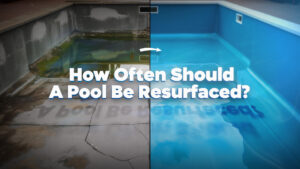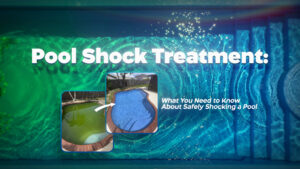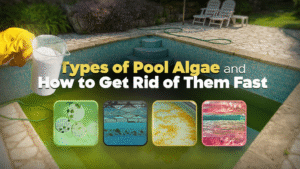Worried about chilly mornings cutting a swim season short? South Florida homeowners need reliable pool heater solutions that balance upfront investment, energy efficiency, and performance in our humid climate. This guide shows you how different pool heater types work, what they cost to install and operate, and exactly how to size a unit using BTUs. You’ll explore heat pumps, electric pool heaters, and even consider gas and solar options, learn local cost ranges, compare leading brands, and discover efficiency and maintenance tactics to keep your pool warm year-round.
What Are the Different Types of Pool Heaters and Their Pros and Cons?
Understanding heater technologies helps you match performance to budget and climate needs. Below is a quick pros-and-cons overview of each main pool heater category, with a focus on solutions best suited for South Florida’s unique climate.
- Heat Pumps
- Electric Pool Heaters
- Gas Pool Heaters
- Solar Pool Heaters
While gas and solar heaters have their place in other regions, South Florida’s mild winters and consistent temperatures make heat pumps and electric pool heaters the most practical and efficient choices for most homeowners. Each option balances energy source, efficiency, and operating expenses based on South Florida’s warm environment, and your choice will influence both monthly bills and maintenance demands.
How Do Heat Pumps Work and Why Are They Efficient in South Florida?
Heat pumps are the workhorses of pool heating in South Florida. They operate by extracting warmth from the ambient air and transferring it to your pool water, using a sophisticated system of a compressor, evaporator, and refrigerant loop. This process is incredibly efficient, boasting a high Coefficient of Performance (COP). This means a heat pump can deliver up to 5 units of heat for every single unit of electricity it consumes. For instance, a heat pump can effectively maintain a comfortable 80°F water temperature even on cooler winter nights by capturing heat from air as low as 50°F. This makes them an ideal solution for year-round comfort in areas like Broward and Palm Beach County, offering a balance of performance and energy savings.
Given their efficiency and suitability for our climate, heat pumps are often the preferred choice for South Florida residents. They provide consistent warmth without the high fuel costs associated with other heating methods.
When Should You Consider Electric Pool Heaters?
Electric pool heaters offer a straightforward approach to pool heating. They function similarly to an electric water heater, using high-wattage elements to generate heat directly. These units are known for their simple installation and low maintenance requirements. However, it’s crucial to understand that they come with the highest operating costs among common pool heating solutions. For full-size South Florida pools, the monthly energy expenses can often exceed $500, making them less cost-effective for primary heating compared to heat pumps. Electric pool heaters are best suited for smaller applications, such as plunge pools or spas, where quick, compact heat sources are prioritized over long-term energy efficiency.
While they can provide rapid heating, their energy consumption makes them a less common choice for main pool heating in South Florida compared to the more efficient heat pump technology.
Why Gas and Solar Heaters Are Less Common for South Florida Pools
In regions where temperatures frequently drop significantly, gas and solar pool heaters can be essential tools for extending the swimming season. Gas heaters excel at providing rapid heat, even in colder weather, making them a popular choice in states with harsh winters. Solar heaters, while environmentally friendly, rely heavily on consistent, strong sunlight, which can be less predictable during cooler months in some climates.
However, South Florida’s climate presents a different scenario. Our mild winters mean that temperatures rarely plummet to levels where gas heaters become a necessity for quick, emergency heating. Similarly, while solar energy is abundant, the consistent warmth provided by heat pumps often makes them a more reliable and cost-effective primary heating solution year-round. For these reasons, heat pumps and, to a lesser extent, electric pool heaters are the go-to solutions for most South Florida pool owners. Gas and solar heaters are generally more suited for colder climates where rapid heating or consistent solar gain is paramount.
How Do You Determine the Right Pool Heater Size Using BTUs?
Calculating the correct BTU (British Thermal Unit) requirements is crucial for ensuring your pool heater can effectively overcome heat loss and maintain your desired water temperature. Accurate sizing depends on several factors, including your pool’s volume, the temperature difference you aim to achieve, and local climate conditions.
What Is a BTU and Why Is It Important for Pool Heating?
A British Thermal Unit (BTU) is a standard measure of energy. Specifically, it’s the amount of energy required to raise the temperature of one pound of water by 1°F. When selecting a pool heater, its total BTU output must be sufficient to meet your pool’s heating demands. If a heater is over-sized, it can lead to wasted energy and inefficient operation. Conversely, an under-sized unit will struggle to reach or maintain the desired temperature, leaving your pool uncomfortably cool.
For example, if you need to heat a 20,000-gallon pool by 10°F within a 24-hour period, you would typically require a heater with an output of approximately 167,000 BTUs per hour. This calculation helps guide you toward selecting a heater with the appropriate capacity.
The Rule of Thumb for BTU Sizing in South Florida
A common rule of thumb for estimating pool heater BTU requirements, particularly for South Florida, is based on the pool’s surface area. The formula is generally: (Surface Area in square feet ÷ 3) × 1,000 = Required BTUs.
For typical South Florida pools:
- Smaller Pools: Often around 12ft x 24ft (288 sq ft). Using the formula: (288 / 3) * 1000 = 96,000 BTUs.
- Medium Pools: Often around 15ft x 30ft (450 sq ft). Using the formula: (450 / 3) * 1000 = 150,000 BTUs.
Based on these calculations and our experience in South Florida, we typically recommend 125,000 BTU heat pumps for standard-sized pools. For slightly larger pools, a 150,000 BTU unit is often the best fit. It’s rare that pools in our region require significantly larger units. Ready to ensure your pool is always the perfect temperature? Get in touch with our team today at 954-478-8783 to find out what’s the perfect heat pump size and which brands we suggest for your specific pool and South Florida location!
How Does Pool Size and Climate Affect BTU Requirements?
While pool volume and the desired temperature increase are primary drivers of BTU needs, South Florida’s climate plays a significant role in refining these estimates. Our relatively warm winters mean less heat loss compared to more northern regions. However, factors like a larger surface area and increased wind exposure can amplify evaporation, which is the primary cause of heat loss in swimming pools—accounting for over 70% of it. For instance, a 25,000-gallon pool located in a windy coastal area might necessitate a higher BTU rating (e.g., 200,000 BTUs) compared to a similar-sized pool situated inland (e.g., 150,000 BTUs) where wind exposure is less of a factor.
To get the most precise sizing, it’s always best to consult with a professional who can assess your specific pool and location. You can also utilize online tools designed for this purpose.
What Are the Typical Installation and Monthly Operating Costs for Pool Heaters in South Florida?
Budgeting for both the initial installation and the ongoing energy bills is a key part of selecting the right pool heating system. The following table provides a comparison of typical costs for heat pumps and other common options in our region. While gas and solar heaters are options, they are generally less suitable or cost-effective for primary heating in South Florida compared to heat pumps.
| Heater Type | Typical Installation Cost (South Florida) | Estimated Monthly Energy Cost (South Florida) |
|---|---|---|
| Heat Pump (125k–150k BTU) | $3,500 – $6,000 | $50 – $150 |
| Electric Pool Heater (High Wattage) | $2,000 – $3,500 | $200 – $500+ |
| Gas Pool Heater (Natural Gas/Propane) | $2,000 – $4,500 | $100 – $300+ (Varies with fuel prices) |
| Solar Pool Heater (System Dependent) | $3,000 – $7,000+ | $0 – $20 (Minimal pump electricity) |
Understanding the Cost-Effectiveness of Heat Pumps
Heat pumps represent a significant upfront investment, but their long-term operating costs are remarkably low, making them the most economical choice for most South Florida homeowners. Their high Coefficient of Performance (COP) means they use electricity very efficiently to transfer heat, rather than generating it directly. This translates to substantially lower monthly energy bills compared to electric pool heaters, and often even gas heaters when used consistently.
While gas heaters might have a lower initial installation cost, their ongoing fuel expenses can quickly surpass the savings from a cheaper upfront purchase, especially with frequent use. Solar systems, while having minimal running costs, often require a substantial initial investment for the collector array and may not provide sufficient heat on their own during cooler periods, necessitating a backup system.
Estimated Monthly Energy Costs for Heat Pumps
For a typical South Florida pool, the monthly energy costs associated with running a heat pump are quite manageable. Depending on usage patterns, electricity rates, and the specific efficiency of the unit, you can expect costs to range from approximately $50 to $150 per month. This is significantly lower than what you would typically see with electric pool heating, which can easily exceed $500 per month, or even gas heating, which can fluctuate considerably based on natural gas or propane prices and usage.
Pool Heating Efficiency and Energy Costs
Research indicates that heat pumps generally offer the lowest monthly energy costs compared to gas and electric pool heaters, due to their high Coefficient of Performance (COP). While solar pool heaters can further reduce energy expenses by utilizing renewable energy, they often require a backup system for consistent warmth in climates with less predictable sunshine or cooler periods, adding to the overall cost.
How Does Pool Heater Efficiency Impact Your Monthly Bills?
The efficiency of your pool heater is directly linked to your monthly energy expenses. A higher COP (Coefficient of Performance) for heat pumps means that for every unit of electricity consumed, more units of heat are produced. For example, a heat pump with a COP of 5 delivers 500,000 BTUs of heat using only 100,000 BTUs of electrical input. This is vastly more efficient than an electric pool heater, which would require nearly 500,000 BTUs of electrical input to produce the same amount of heat, representing an 80% increase in energy consumption.
Choosing a properly sized, high-efficiency heat pump and implementing strategies to reduce heat loss (like using a pool cover) will significantly lower your energy usage, reduce utility bills, and extend the lifespan of your equipment.
For homes in coastal areas of South Florida, it’s also recommended to periodically flush the unit’s cooling coils with fresh water to prevent salt buildup, which can accelerate corrosion. Adhering to these maintenance schedules will help prevent costly breakdowns and ensure your heater performs reliably season after season.
Which Pool Heater Brands Are Best Suited for South Florida Pools?
When selecting a pool heater for your South Florida home, it’s essential to choose brands that are specifically designed to withstand our humid, coastal environment and offer reliable performance. Key players known for their durability and effectiveness in our region include Hayward, Pentair, AquaCal, Gulfstream, and Heat Siphon. These manufacturers offer features that combat corrosion and ensure consistent heating.
What Features Make Hayward and Pentair Heat Pumps Popular in South Florida?
Hayward and Pentair are consistently top choices for South Florida pool owners due to their robust engineering and features tailored for our climate. Their heat pumps commonly incorporate titanium heat exchangers, which are highly resistant to the corrosive effects of salt air and pool chemicals, significantly extending the unit’s lifespan. Many models also boast quiet operation, often measuring below 58 dB, ensuring minimal disruption to your outdoor living space. Advanced digital controls allow for precise temperature management and easy operation. Furthermore, their multi-stage compressors are designed to optimize COP across a wide range of ambient temperatures, guaranteeing consistent and efficient performance even during our mild winter nights.
These attributes make Hayward and Pentair heat pumps a reliable investment for year-round pool comfort.
How Do AquaCal, Gulfstream, and Heat Siphon Compare for Local Conditions?
AquaCal, Gulfstream, and Heat Siphon are also reputable brands offering excellent options for South Florida pools, each with distinct advantages:
| Brand | Corrosion Resistance Features | Typical Service Network | Average Noise Level |
|---|---|---|---|
| AquaCal | Titanium heat exchanger, durable exterior coatings | Extensive regional dealer network | Around 55 dB |
| Gulfstream | Coated copper coils, robust cabinet construction | Local manufacturer with dedicated support | Around 60 dB |
| Heat Siphon | E-coated heat exchanger for enhanced protection | More limited, but dedicated dealer network | Around 58 dB |
When choosing among these brands, consider the availability of local service and support, as well as specific features that best suit your budget and performance expectations.
What Should You Know About Warranty and Maintenance for These Brands?
Understanding the warranty and maintenance requirements for your chosen pool heater brand is crucial for long-term satisfaction and performance. Most major heat pump brands, including Hayward, Pentair, AquaCal, Gulfstream, and Heat Siphon, offer competitive warranties. Typically, you can expect 5 to 10-year warranties on the heat exchanger, which is the core component exposed to pool water and potential corrosion. Parts and labor warranties usually range from 1 to 2 years.
Regular maintenance is key to maximizing the lifespan and efficiency of any pool heater. Essential practices include:
- Cleaning debris from the unit’s air intake fins to ensure optimal airflow.
- Checking refrigerant levels annually by a qualified technician.
- Cleaning pool filters regularly (monthly is a good guideline) to maintain proper water flow.
- Annual professional tune-ups to ensure the compressor is operating efficiently and airflow is unobstructed.
Considering a new pool heater? Contact our expert team today at 954-478-8783. We can help you navigate the best brands and models for your specific pool size, budget, and South Florida location, ensuring you get the most efficient and reliable heating solution.
How Can You Maximize Pool Heater Efficiency and Longevity in South Florida?
Investing in a quality pool heater is just the first step; implementing smart practices and utilizing the right accessories can significantly enhance its efficiency, reduce operating costs, and extend its lifespan, especially in South Florida’s unique climate.
What Maintenance Practices Are Essential for South Florida’s Humid Climate?
Consistent maintenance is paramount for keeping your pool heater running optimally in our humid environment. Key practices include:
- Regular Cleaning of Air Fins: Ensure the air intake fins are free of leaves, dirt, and debris. This allows for maximum airflow, which is critical for the heat pump’s efficiency.
- Filter Maintenance: Clean your pool’s filtration system monthly. Clogged filters restrict water flow, forcing the heater to work harder and reducing its efficiency.
- Annual Professional Check-ups: Schedule an annual service appointment with a qualified technician. They can check refrigerant levels, inspect electrical components, verify compressor operation, and ensure optimal airflow.
- Coastal Corrosion Prevention: For homes near the coast, periodically rinse the exterior of the unit with fresh water to wash away salt residue that can accelerate corrosion.
These routine steps, combined with professional tune-ups, prevent minor issues from becoming costly repairs and maintain the heater’s peak performance.
How Does Pool Evaporation Affect Heat Loss and How to Minimize It?
Evaporation is the silent energy thief of your swimming pool, accounting for over 70% of all heat loss. As water evaporates from the pool’s surface, it carries a significant amount of thermal energy with it. This constant loss means your heater has to work overtime to maintain the desired temperature, leading to higher energy bills.
Minimizing evaporation is one of the most effective ways to improve heating efficiency:
- Use a Pool Cover: A solar cover or a standard pool cover is the single most effective tool against evaporation. When used consistently, especially overnight, it dramatically reduces water loss and heat dissipation.
- Consider Evaporation Inhibitors: Liquid evaporation inhibitors can be added to the pool water. These form a micro-thin barrier on the surface, reducing the rate of evaporation without affecting swimmers.
- Windbreaks: If your pool is in a particularly windy area, consider installing windbreaks like hedges or screens to reduce surface air movement, which accelerates evaporation.
By actively managing evaporation, you significantly reduce the workload on your pool heater, saving energy and money.
Heat Loss and Evaporation in Pools
Studies consistently show that evaporation is the primary driver of heat loss in swimming pools, often exceeding 70% of total heat loss. Implementing strategies such as using pool covers and evaporation inhibitors can significantly reduce this heat loss, leading to lower energy consumption and substantial cost savings on pool heating.
Can Pool Covers and Smart Controls Improve Heating Efficiency?
Absolutely. Pool covers and smart control systems are powerful allies in maximizing heating efficiency and convenience:
- Solar Covers: These covers not only reduce evaporation but also trap solar heat during the day, warming the water naturally. Using a solar cover, especially overnight, can extend your comfortable swimming season by several degrees and reduce the need for the heater to run as long.
- Smart Thermostats and Automation: Modern pool automation systems and smart thermostats offer sophisticated control over your heating. They allow you to:
- Schedule Heating: Program your heater to run during off-peak electricity hours when rates are lower.
- Optimize Runtime: Some systems can adjust heating based on real-time weather forecasts and pool temperature, ensuring the water is warm when you want it without unnecessary continuous operation.
- Remote Monitoring: Receive alerts and monitor your system’s performance from your smartphone, allowing for quick adjustments and early detection of any anomalies.
By combining diligent maintenance, effective heat retention strategies like pool covers, and intelligent control systems, you can ensure your pool is always inviting, your energy bills are minimized, and your pool heating investment is protected for years to come.
Frequently Asked Questions (FAQ) About Pool Heaters in South Florida
What is the most cost-effective pool heater for South Florida?
For most South Florida homeowners, a heat pump is the most cost-effective pool heater in the long run. While the initial installation cost might be higher than some other options, their exceptional energy efficiency (high COP) leads to significantly lower monthly operating costs. They provide reliable heating year-round without the high fuel consumption of gas heaters or the limitations of solar during cloudy periods.
How long does a pool heat pump typically last in South Florida?
With proper maintenance, a quality pool heat pump can last anywhere from 10 to 20 years in South Florida. The humid, salty air can be harsh on equipment, so choosing a model with excellent corrosion resistance (like titanium heat exchangers) and adhering to a regular maintenance schedule are crucial for maximizing its lifespan.
Do I really need a pool heater in South Florida?
While South Florida enjoys warm weather, temperatures can dip, especially during winter evenings and early mornings, making the pool water uncomfortably cool for swimming. A pool heater allows you to extend your swimming season comfortably throughout the year, ensuring your pool is always an inviting oasis, regardless of minor temperature fluctuations.
What size BTU heat pump do I need for my pool?
The BTU requirement depends on your pool’s size, desired temperature, and local conditions. For typical South Florida pools, a 125,000 BTU heat pump is often sufficient. For slightly larger pools, a 150,000 BTU unit may be recommended. Using the rule of thumb (Surface Area ÷ 3) × 1,000 and consulting a professional or using an online calculator like the one provided by Pentair can give you the most accurate sizing.
How much does it cost to install a pool heat pump in South Florida?
The typical installation cost for a pool heat pump in South Florida ranges from $3,500 to $6,000. This price can vary based on the specific BTU size of the unit, the complexity of the installation (e.g., distance from the electrical panel, plumbing modifications), and the brand chosen.
Are solar pool heaters worth it in South Florida?
Solar pool heaters can be a supplementary option in South Florida, especially for extending warmth during sunny shoulder seasons. However, they are generally not recommended as the sole heating solution. Their effectiveness is entirely dependent on sunlight, and they may not provide consistent warmth during cooler or overcast days. The initial cost for a solar collector array can also be substantial, often comparable to or exceeding the cost of a heat pump system when considering the full installation. For reliable, year-round heating, heat pumps are typically a more practical and cost-effective primary choice.
Conclusion: Enjoy Year-Round Warm Water
Choosing the right pool heater is a significant decision that impacts your comfort, energy bills, and overall enjoyment of your swimming pool. In South Florida, the mild climate and consistent temperatures strongly favor the use of highly efficient heat pumps. They offer the best balance of upfront cost, long-term operating expenses, and reliable performance, making them the premier choice for homeowners seeking year-round warm water.
By understanding the importance of proper BTU sizing, selecting reputable brands known for their durability in coastal environments, and implementing essential maintenance and efficiency practices like using pool covers and smart controls, you can ensure your pool heating system operates optimally for years to come.
Don’t let cooler temperatures dictate your swimming schedule. Contact our expert team today at 954-478-8783 to discuss your specific needs and get a personalized recommendation for the perfect pool heater for your South Florida home. Let us help you achieve worry-free swimming in every season!








